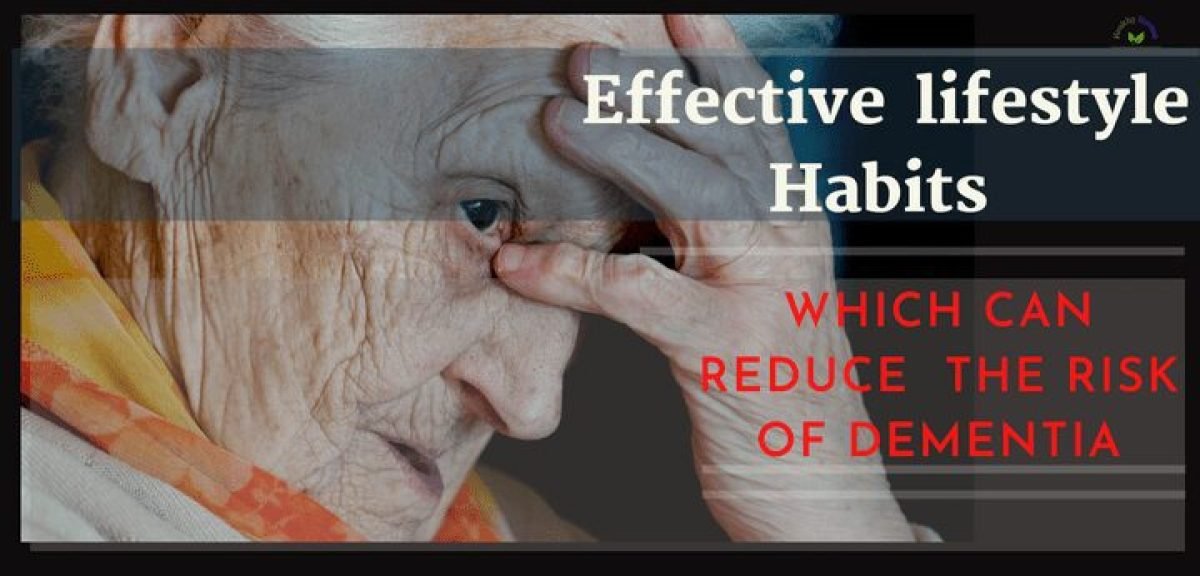A degenerative condition called dementia results in a sharp decline in brain activity. It interferes with your capacity to recall memories and think when it first emerges. And can even affect your regular brain chemical functioning. It typically has to do with inherited issues and changes brought on by growing older. Dementia, though, can also come from other illnesses.
Your memory may be impacted by stress, sleepiness, certain diseases, and medications. But it’s a good idea to chat to a Doctor about the early indications of dementia if you’re getting more forgetful, especially if you’re over 65.
If it occurs sporadically, memory loss can be bothersome, but if it interferes with your regular activities, worries you, or someone you love, you should seek medical attention.
Memory loss is not the sole symptom of dementia. It may also have an impact on how you act, speak, think, and feel. Additionally, it’s critical to keep in mind that dementia is not a normal aspect of aging.
Risks Related to Dementia
Problems with: may be among the signs of dementia.
- loss of memory
- Thinking speed
- Mental strength and ability
- Language, such as using the wrong terminology or having issues in speaking interpreting
- Mood
- Difficulty in doing daily activities
People who have dementia may become disinterested in their typical pursuits and struggle to control their behavior or emotions. Additionally, they could find social interactions challenging and stop interacting with others. They may experience personality changes and lose empathy (understanding and compassion). Dementia patients may hear or see things that others do not (hallucinations).
It may appear that persons with dementia are lying or purposefully disregarding issues because they may lose the capacity to remember details or may not completely comprehend their surroundings or situations. Planning and organizing be challenging for someone with dementia since dementia impairs mental functions. Keeping their independence may also prove difficult. A person suffering from dementia will typically require assistance from friends or family, including assistance with decision-making.
Over time, dementia symptoms typically get worse. People with advanced dementia won’t be able to care for themselves and may lose their capacity to speak.
Take care of your heart

According to research, those with diabetes, high cholesterol, high blood pressure, or obesity—especially those who are middle-aged or older—have a higher chance of acquiring dementia in later life. Untreated diseases can result in harmed blood vessels in the brain, which in turn harms brain cells and impairs cognitive abilities.
You will offer yourself the best chance of preventing or postponing dementia even if there are no certainties that maintaining heart health can prevent dementia.
Studies have found that treating high blood pressure lowers that risk, which is encouraging. Although more study is required in this area, some studies suggest that addressing high cholesterol and diabetes may also lower the risk of dementia.
You should have frequent checkups to evaluate your:
All individuals, especially after they reach middle age, should have their blood pressure monitored by their doctor on a regular basis for two reasons: blood pressure and body weight. Research suggests that people who are obese in midlife are more likely to acquire dementia than those with normal body weight. Therefore, all individuals should attempt to maintain healthy body weight to lower their chance of developing dementia.
- Cholesterol – as even modestly high cholesterol is linked to an increased risk of dementia, it’s crucial to take all necessary steps to keep your cholesterol within safe limits.
- Blood sugar levels: Type 2 diabetes, which might raise your risk of dementia, indicated by high blood sugar levels.
- In order to reduce your chance of developing dementia, try to stop smoking and stay away from other people’s smoke.
- You should constantly abide by your doctor’s recommendations in order to lower your risk of dementia. Midlife is a particularly important time to schedule frequent checkups with your doctor.
Significance of diagnosis
Although there is currently no treatment for dementia, an early diagnosis can sometimes halt the disease’s progression, allowing the patient to retain their mental capacity for a longer period of time.
Receiving the appropriate care and support after a dementia diagnosis. They, as well as others close to them, can use it to be ready for the future. Many people with dementia are able to live active, happy lives with the right care and support.
Effective Lifestyle habits to reduce the risk of Dementia

Although various medical methods have been established to deal with it, this still leads to some of the most serious dependence issues among the aged population. As a result, a variety of behaviours with positive effects on the brain have been suggested by several specialists as ways to lower your chance of developing this illness.
Get Physical Activity
The best preventive action you can do to stave off dementia and other age-related cognitive issues is to exercise regularly. This is because it has positive effects on your cardiovascular and circulatory systems, which are essential for enhancing brain function.
Suggestions
- Make an attempt to exercise for at least 30 minutes each day.
- Create a workout schedule that includes both strength training and aerobic activity.
Quit Smoking
People who smoke or are frequently exposed to cigarette smoke have an increased chance of getting dementia, including Alzheimer’s disease, which can drastically lower the quality of life. Foregoing smoking and implementing a thorough detox strategy may be essential to preventing these grave effects.
Suggestions
- If you associate with a group of smokers, attempt to adopt certain practices to kick the bad habit before it has a negative impact on your health. This can entail organizing a collaborative effort to stop together.
- After all, everyone benefits from it. Tea for anxiety can help you stop smoking, as can keeping your mind occupied with other activities.
Read Everyday
Avoiding the development of neurodegenerative disorders is among the finest strategies to exercise and improve your brain. When you read, several crucial memory processes are active, which improves your creativity and other cognitive skills.
Suggestions
- In your free time, read interesting articles.
- Open a book that interests you and begin reading it.
- Consider reading briefly each night before bed.
Do activities that challenge your brain
It’s a terrific idea to engage in challenging mental exercises to improve your memory, reasoning, and other critical abilities. Your risk of memory loss as you age can be reduced by solving puzzles, math problems, and other mental activities.
Suggestions
- •Complete Sudoku, crossword puzzles, or other strategic games.
- Solve some mathematical issues.
- Pick up a new tongue.
- Don’t touch the pen or pencil when writing.
Adopt a healthy diet
How well your brain operates might be affected by the nutrients you get from your food. Eating nutritious foods that are high in antioxidants and other nutrients supports optimal cellular oxygen levels and ongoing cell renewal.
However, foods high in sugar, saturated fats, and other industrial chemicals might hasten the deterioration of your cognitive abilities.
Suggestions
- Create a calorie-restricted eating schedule with a variety of fruits and vegetables.
- Drink more water and other nutritious liquids on a regular basis.
- Don’t forget to up your consumption of wholesome sources of complex carbs and necessary amino acids.
- Eat plenty of meals high in omega-3 fatty acids.
- Steer clear of processed or too salty meals.
Enjoy your social activities
Social interactions regularly increase brain activity and provide positive sensations, which both works to prevent dementia as we age. Maintaining a network of family and friends that you can communicate with on a daily basis not only helps you remember things better, but it also keeps you from feeling lonely and depressed.
Suggestions
- Make arrangements to have a good time with family and friends during your leisure time.
- All of these behaviors may be a terrific support system for keeping your brain active and powerful despite the passage of time.
- Form healthy relationships when you feel sad or depressed.
- If you try to include them in your regular activities, you’ll notice a change.
Limit your alcohol intake.
Overindulging in alcohol can harm your brain and raise your chances of developing dementia. Alcohol-related dementia is a disorder that develops as a result of prolonged, excessive alcohol usage. Additionally, it could make other dementias like Alzheimer’s disease more likely.
According to some research, drinking in moderation may marginally reduce the risk of dementia compared to abstaining from alcohol altogether. For those who have particular diseases or are taking specific medications, alcohol might raise health risks. Inquire with your doctor if you have any queries because more study is required in this area.
- If you are drinking too much, your doctor can offer guidance on how much is safe for you to consume and work with you to cut back.
- If necessary, your doctor may also recommend drugs, issue you a low-risk drinking prescription, or create a personalized plan to help you cut back on your drinking.
Make thoughtful, secure decisions
The decisions we make on a daily basis have a significant impact on our capacity to preserve lifelong brain health.
According to research, lifestyle and environmental variables have the most impact on a person’s risk for dementia, followed by age (and, in certain circumstances, heredity).
For lifelong brain health, it is crucial to safeguard your body at any age. Make prudent decisions to shield yourself from illnesses and other traumas that may otherwise raise your chance of developing dementia.
The following dementia risk factors can be decreased by making wise and secure decisions:
- head trauma
- loss of hearing
- high alcohol intake
- Smoking
Five suggestions for making wise and secure decisions
Eliminate bad behaviors from your life. Smoking, excessive drinking, and loud music listening are a few examples of negative behaviors. In the short run, they could be entertaining, but not over time.
Guard your head. If you’re indulging in vigorous exercises, such as skating, skiing, skateboarding, scootering, rollerblading, or cycling, wear a helmet. Set a good example by wearing a helmet, and make sure the kids in your care do as well.
Evaluate the safety of the surroundings. Do your daily activities at work or where you live expose you to dangers like noise pollution or loud noises? Do you have grab bars or railings in your house to increase accessibility and reduce falls? You may take precautions against possible hazards in your environment by being aware of them.
Track your statistics. By doing this, you’ll find it simpler to maintain healthy blood pressure, cholesterol, weight, and blood sugar levels. In fact, each of these ailments raises your chance of developing dementia.
Visit your physician frequently. This will assist you in addressing any particular health issues you might have, such as nutrition, hearing tests, and physical exercise.
Informing others about your dementia

It’s great to share your diagnosis with people when you’re ready. It’s a good idea to let them know about any difficulties you may have understanding recalling what was said during a conversation.
Some individuals could treat you differently than they did in the past. This may be a result of their ignorance about dementia or their want to assist but lack of knowledge of how. Try to describe what your diagnosis implies and how they can support and aid you.
For instance, if you are unable to drive anymore, they might take you to regular activity.
Additionally, you could discover that you lose contact with some people. This can be the case if you no longer engage in the same activities as you formerly did together or if you find it challenging to maintain contact. It might be challenging to accept this. However, you may make new friends by joining activities and support groups. Pay attention to the folks who are supporting you.
When you require more assistance and support
You might be able to maintain your independence and have a busy social life while still living at home in the early stages of dementia. It is probable that you may want more assistance with regular tasks like housekeeping, grocery shopping, and cooking as the condition worsens.
The first step is to submit an application for a needs assessment to your local council’s adult social services. This will show you where you might need assistance. This should be done as soon as possible following your diagnosis since a needs assessment might reveal items you might not have considered.
Conclusion
All parts of a person’s life, as well as those around them, can be impacted by dementia. It’s crucial to bear in mind the following if you have been given a dementia diagnosis:
Everyone experiences dementia differently, so even though you struggle with memory, focus, and planning, you’re still you. You’ll be more optimistic if you keep your attention on the things, you can still accomplish and enjoy. Many individuals may and do live well with dementia for many years if they receive the correct care and support when they need it.
Also Read: Lifestyle Medicine: Real Future of Health




